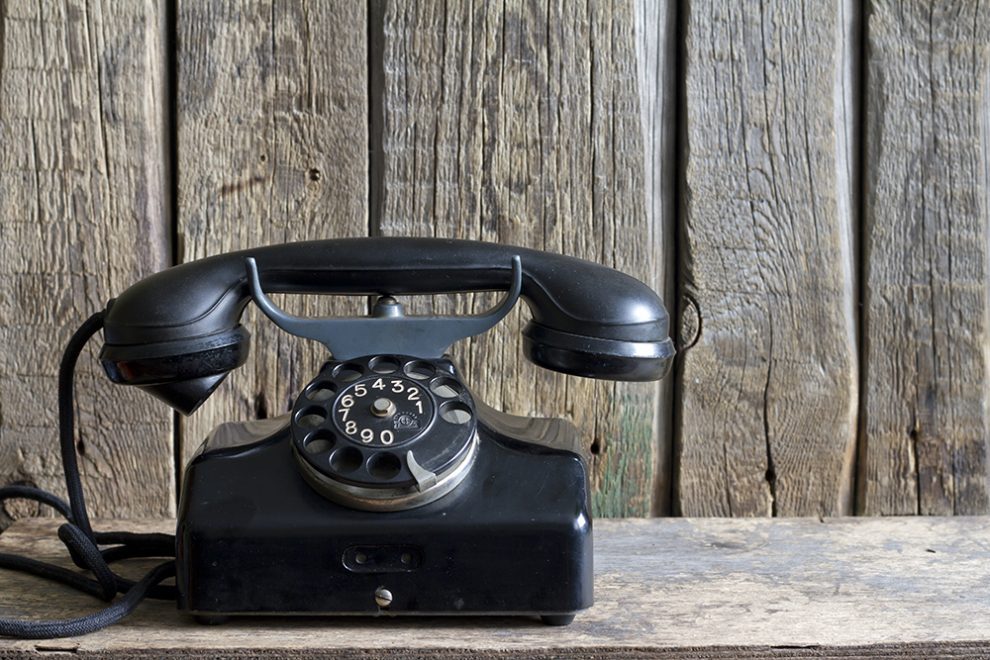When almost everyone has a mobile phone, why are more than half of Australian homes still paying for a landline? Adam Turner investigates.Since the birth of the iPhone ten years ago, more and more Australians are questioning why they’re still paying for a home phone. Apple didn’t invent the smartphone, but the iPhone helped transform mobile phones from a business tool – for tradies and stockbrokers – into a must-have consumer gadget.
These days you’d be hard pressed to find anyone in Australia over the age of 15 who doesn’t own a mobile phone, in fact plenty of younger kids have one in their pocket. We might not all be packing the latest and greatest smartphones, but practically everyone can make and receive calls anywhere, anytime.
Despite this, 55 per cent of Australians still have a landline phone at home and only just over a quarter (29%) rely solely on their smartphones, according to a finder.com.au survey. Keep in mind that this is an online-only survey, so it’s not capturing seniors who still have a home phone and don’t use the internet.
Of those Australians who still have a landline, a third concede that it’s not really necessary and they’re keeping it as a security blanket – 19 per cent say they never use it while a further 13 per cent keep it in case of emergencies. I confess my home falls into that category.
Of course once you move to the NBN your home phone will likely die when your broadband line is down or the power goes out, making a mobile phone more practical in an emergency (assuming the local cell tower isn’t flooded).
Some people will also balk at the idea of keeping their landline on the NBN when they discover that they probably need to rewire their hometo connect their handsets to their broadband modem.
I know people who’ve unplugged their home phone because the only incoming calls are from telemarketers. These friends are on a Telstra cable bundle which gives them a home phone line whether they want it or not, so when the NBN reaches their street you can be sure they’ll be quick to ditch their landline.
Despite all this, more than half of Australian homes are still choosing to stick with their home phone. Age demographics are naturally a factor – only 58 per cent of Gen Ys still use landlines occasionally, compared to 84 per cent of Baby Boomers who’ve perhaps had the same home number for 50 years. Age isn’t the only factor, I’d say it’s also to do with the makeup of your household.
Gen Xers with young families, like my wife and I, can still find it convenient to have a communal home phone rather than issuing a mobile phone to every family member, or have us fielding every call on our mobiles. The school has our mobile numbers for emergencies, but we don’t need everyday calls ringing in our pockets – especially when you’re travelling for work.
That said, to be honest the only people who ever ring our home phone are our Baby Boomers parents, to the point where we play a game and guess who is calling before we pick up the phone (using Caller ID would take the fun out of it). Realistically they’re the only people we’d need to notify if we ditched our landline.
I tell myself the home phone is also for the benefit of our children, while my teenage son half-heartedly complains about not having his own mobile phone to the point that it’s become a running joke.
That said, I’m not sure he’d actually think to pick up the phone even if he had one. On the weekends he tries to reach his friends via Steam Chat to see if they’re free to hang out, while we keep asking “why don’t you just ring his house?” You can be sure our son won’t be in a rush for pay for a landline when he moves out of home.
How attached are you to your landline? How long until they go the way of gas street lamps and morning milk deliveries?
This article was originally published on the Bendigo Advertiser.




















Add Comment